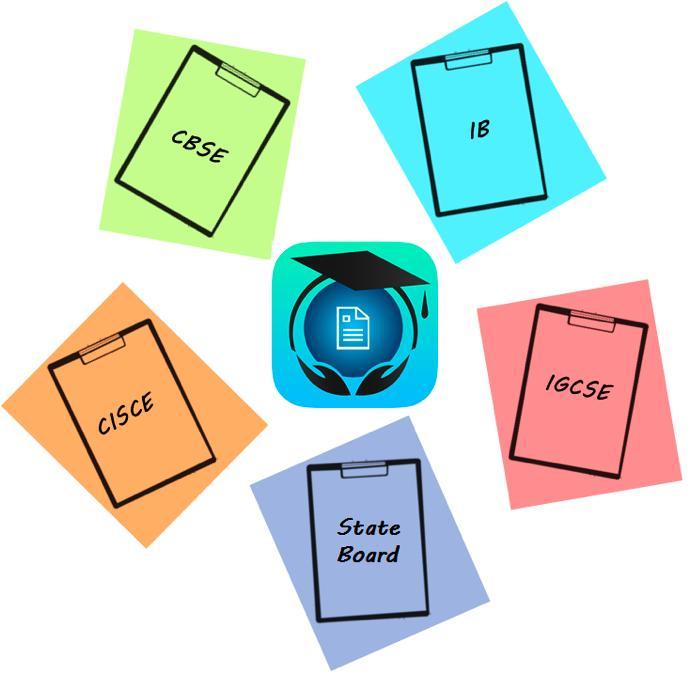IB a Levels Board Choice After 12th Grade

What information do you need to select your subjects and education board? Whether you are studying IB, A levels or local Indian boards, the options are endless. Karan Gupta offers advice on how to make the right choice
The number of schools offering international boards has increased exponentially in the last few years. Students can now choose local Indian boards such as the ICSE and ISC, SSC and HSC or CBSE or international boards such as the IB and A levels. In many cases combination of local and international boards are also possible. For example, students can pursue the IB PYP (primary years program) and MYP (middle years program) curriculum till the 10th grade and then opt for A levels or HSC instead of continuing with the IB DP (Diploma program). Similarly, students can opt for the ICSE or IGCSE board till the 10th grade and then opt for HSC or IBDP or A levels. At Singapore International School, students can start with the PYP, complete their 9th and 10th with the IGCSE and then move on to the IBDP. At Unison School, students can opt to study for the 10th grade IGCSE or the ICSE. Any combination of boards is now possible which gives students tremendous flexibility but also adds confusion as to which option is the best one.
Ask yourself the following questions to make an informed choice:
Am I going to study abroad or in India?
If your plan is to pursue your Bachelors degree education in India itself, it makes sense to do the local boards such as CBSE or HSC so that you get ample time to study for entrance exams. International boards invariably are more competitive and the subject choices they offer may or may not match the requirements for Indian universities. For example, if you wish to study Engineering at a university in India such as Galgotia University, Lovely Professional University or SRM University, you ideally should have Physics and Math at the Higher Level and Chemistry at the Standard Level in your IB curriculum. And if you wish to study Chemical Engineering, you should have Chemistry and Math at the Higher Level and Physics at the standard level. So in some cases it might make more sense to pursue a local board if your plans involve a Bachelors degree in India itself.
How have I performed academically in the previous years?
Don’t just opt for a board because your friends are taking it or if you don’t have much knowledge about the subjects that the board offers. Some boards and subject choices are hard and if you have not performed academically well, you will find the subjects offered very difficult. Instead choose a board that matches your academic performance. For example, there is no point in opting for the IB board and then scoring below 24 and earning an IB certificate.
Do I know what I want career I want to pursue?
If you know that you want to study Engineering be sure not to drop your pure science subjects such as Physics and Chemistry. It’s almost always a good idea to keep Math as a subject till you are certain about your career. It would be a disaster to opt for a board that allows you to drop Math and you realize later that several career options are closed to you. Similarly, don’t drop Biology if you have any plans or inclination to pursue a Medical related field.
Will I have enough time for competitive exams or extracurricular activities?
If you plan to take entrance exams for various engineering colleges or even medical colleges, you should choose a board that gives you ample free time. Similarly, if you plan to participate in several extracurricular activities or are a national level tennis player, you need a curriculum which is flexible and possibly less demanding. For example, if you are studying 4-5 A level subjects or are in the IB board doing 3 High Level and 3 Standard Level subjects, you would get little or no time to study for competitive exams or pursue your extracurricular activities.
You can make the right choice by asking yourself these important questions. Make sure you do your homework well and your future career depends on it.
The author is an alumnus of Harvard Business School
Why Choose Karan Gupta Consulting?
- 27+ years of expertise in overseas education consulting
- 160,000+ students successfully counselled
- Personal guidance from Dr. Karan Gupta, Harvard Business School alumnus
- Licensed MBTI® and Strong® career assessment practitioner
- End-to-end support from career clarity to visa approval

Dr. Karan Gupta
Harvard Alumnus | Career Counsellor
With 27+ years of experience, Dr. Karan Gupta has helped 160,000+ students achieve their study abroad dreams at top universities worldwide.




